Nestled in the rolling fields of Chimacum a family farm continues to grow, adding new strains and a son as the Treehawk clan carries on a decades-long legacy of working with the land.
Drive by the Treehawk farm today and you’ll be greeted by a waft of earthy, sweet and skunky terps oozing from the greenhouse that runs year round. But just a few generations and 50 years ago, the gentle lowing of cows ready to be milked would have been the indication that this was a different type of farm. For founders and married partners Jason and Samantha Olsen, the connection to the land is part of their sustainable competitive advantage – one which offers hope for a future that includes direct-to-consumer sales and tours, much like the renowned Finnriver Farm & Cidery nearby on converted dairy farmland.
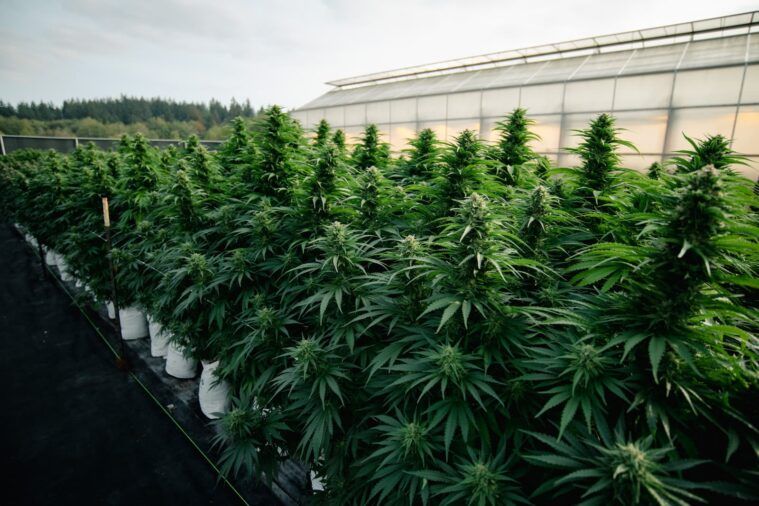
Walking amongst the plants with their giant dog Bodhi, daughters Gigi and Chloe and their new son Xavier, Jason and Samantha are in their element. The kids ignore the plants the way a child notices their parents paperwork or the chaos of a remodeling job as their giggles bounce off the walls of the greenhouse, bringing an uplifting energy to the harvest season. They race up and down the spongy unplanted portion of the field, stopping to swing little brother around by his arms, in a perfect representation of the new American Dream.
“It’s a blessing to be working from home and to have the kids able to share this experience with us,” Samantha explained. “The girls are six and seven now and have grown up with Treehawk – they don’t see it as any different from other parents’ jobs.”
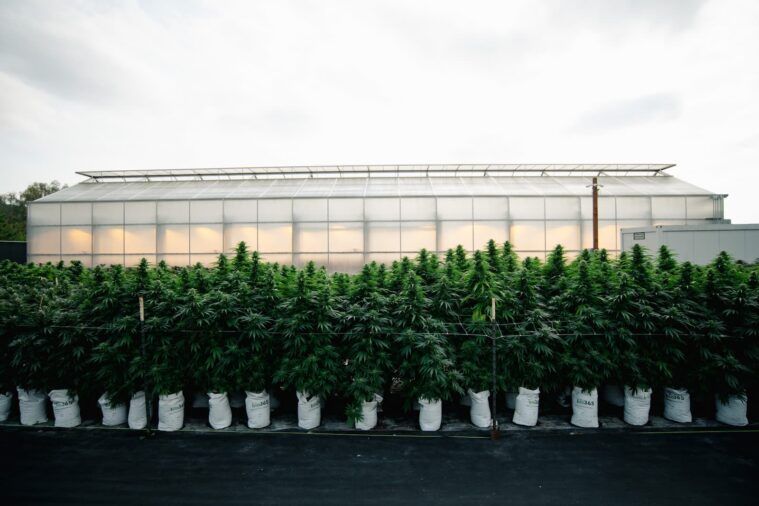
While the pandemic created worldwide disruptions, it did inadvertently lead to a rule change that allowed families to bring their children to work at Cannabis farms, much like owners of breweries are able to have their kids present. With a background at Microsoft (where she’s had to go back for a few of the eight years that Treehawk has been growing), having the ability to pick up kids from school and swing by the farm is keeping the operation sustainable. Both parents are constantly shuffling duties between kids and plants, and it feels both natural and beneficial to have the joyful, youthful energy helping push the farm forward.
“This is a woman-owned farm – Samantha deserves all the credit for keeping the business running,” Jason said lovingly. “I just grow the weed, I can’t run a P/L. I’ve spent eight years learning how to run this, but I haven’t spent any time at a spreadsheet or desk.”
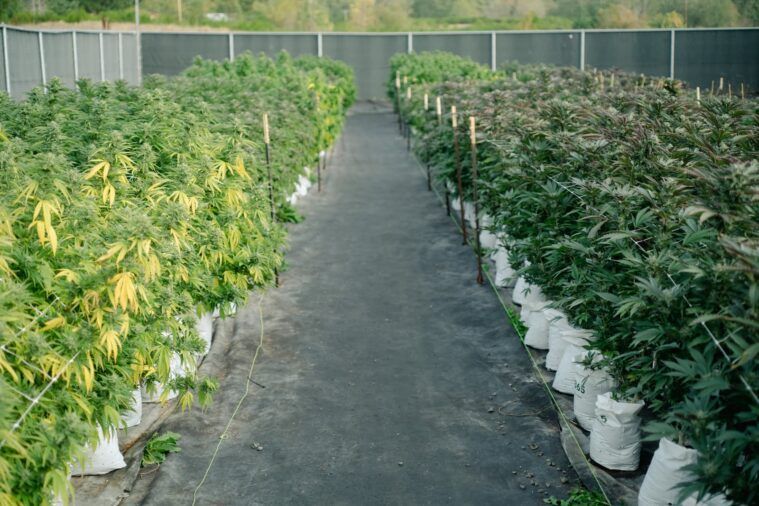
Outdoor farming is as much a gamble as predicting both the weather and the score for the next Seahawks game, with tens of thousands of dollars and hours on the line as the plants grow each day.
“Since we built the greenhouse, we haven’t had the bandwidth or the weather [to grow outdoors] since the last three seasons were short. This spring was so wet we didn’t put plants outside until early July, vegging until August, and we still weren’t really sure the weather would hold,” Jason explained seriously. “Luckily the weather has been amazing and this is some of the best sungrown we’ve ever produced, in part because we broke record highs for heat this October.”
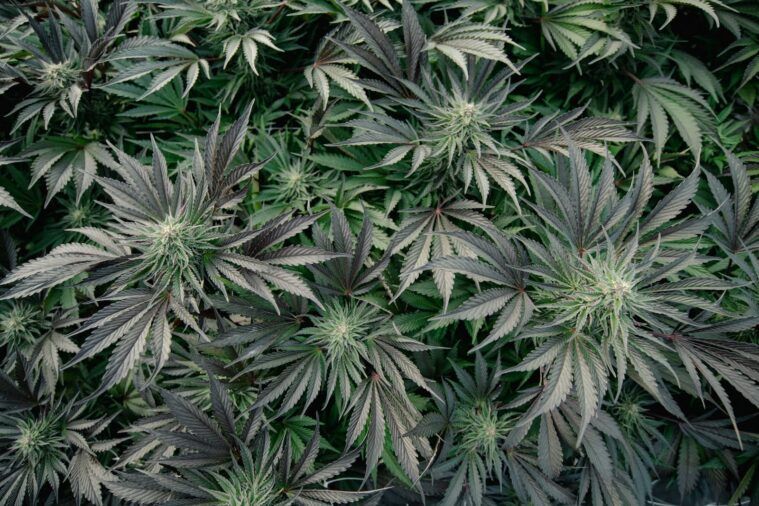
Walking amongst the rows of plants on a 70-degree day in mid-October feels perfect and surreal, especially given the farm’s location on the Olympic Peninsula. The weather is usually about 10 degrees colder than Seattle, and the summer season is generally a few weeks shorter – especially when compared to Eastern Washington, where most sungrown Cannabis is produced in the state.
Even as a small, craft, outdoor garden, the plants require constant love and attention – starting with the two or three hours each morning with a leaf blower to blast away morning dew. All the plants are hand-watered and pruned, by the same team that Treehawk had before the harvest. A team of eight carry the weight, literally, with most of the crew in their fourth or fifth years on site.
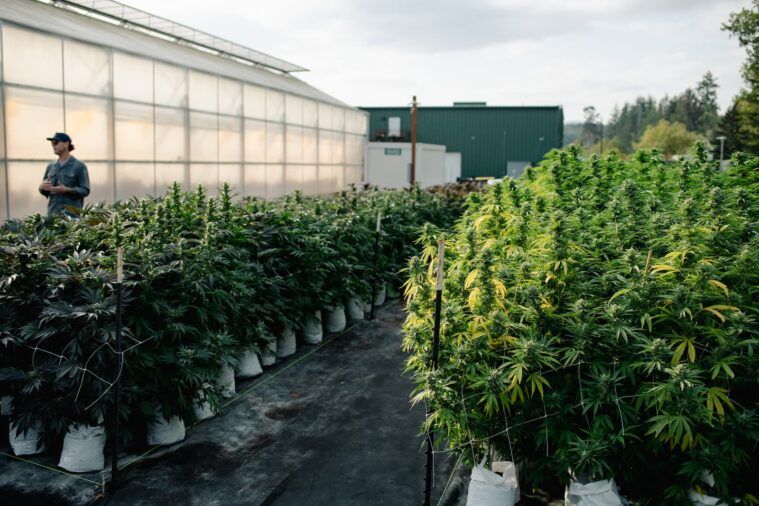
“My livelihood is dependent on the weather and environment, not that we have any control over it. We have to decide when to harvest, how to find room to dry, and we don’t have extra labor so we have to shift resources constantly,” Jason explained. “I enjoy doing all the things, just like getting your kids ready for school, but if you’re late or rushed it’s not fun. If I have time to do the things I love, but I’m rushing to get to the next thing for years, it can be rough.”
With low margins and uncertain economic times in the Cannabis industry, Treehawk has stayed lean and self funded, and made moves to streamline their process without sacrificing quality. These changes include only selling eighths of flower, focusing on full-flower joints and hash-infused joints, and making their own bubble hash and rosin in house. They sell through every crop, with the greenhouse producing three bumper harvests a year – and this year’s outdoor plants will add a ton of new flavors to the infused joints.
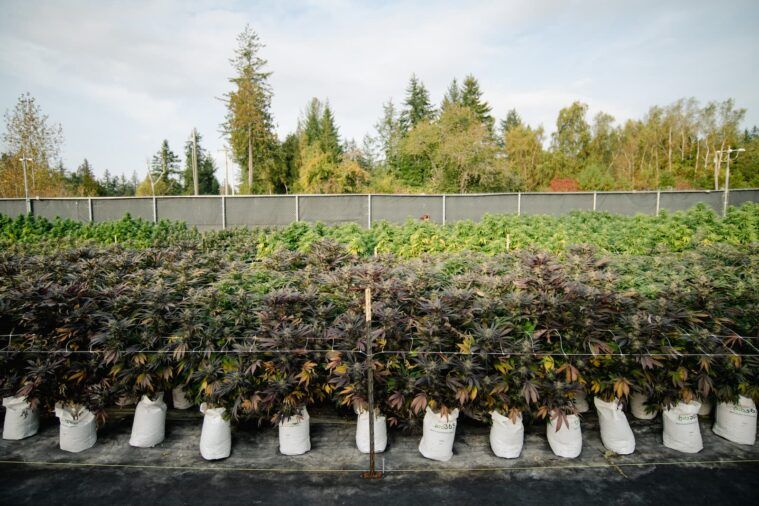
Even with a successful brand and the family able to shoot hoops next to the grow, the Treehawk farm is missing one factor: the ability to connect with their community and consumers.
“The cideries sell wholesale to stores like Costco and make very small margins, they make their money from direct retail and having people on site,” Jason said. “The Small Farm Craft Bill is what we have been hoping for for years and they keep shooting it down. That’s what would allow direct sales, but the state doesn’t want to undercut stores.”
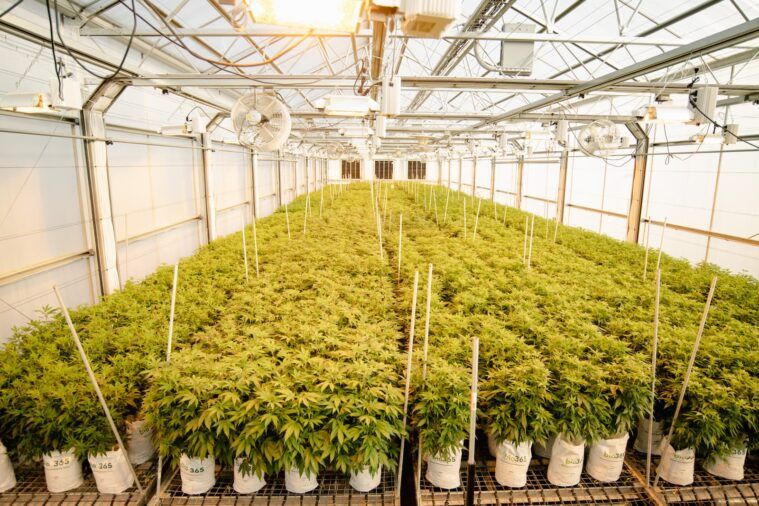
If the farm was able to sell the same gram direct to consumers for a consumption experience at a higher price, similar to how a $4 bottle of cider is poured on site for $10, it would create sustainability and a relationship between consumers and the farms that is missing in the Washington weed market.
“If we could do exactly what we are doing now, but have an opportunity to sell to consumers a portion of our harvests at better margins, we would be able to do this forever,” Samantha said promisingly. “The only thing that keeps us going is the hope of regulations changing, because we don’t ever want to cut corners to lower quality.”










